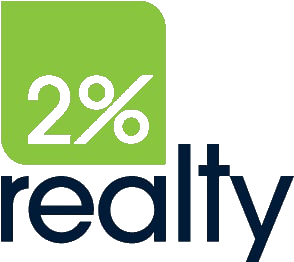Are you navigating Lake Country's complex real estate regulations? This guide simplifies the key aspects of property transactions in the area. We'll cover licensing requirements, legal obligations, zoning laws, and mandatory disclosures. By understanding these regulations, you'll be better equipped to make informed decisions and avoid potential pitfalls in your real estate endeavors. Whether you're a buyer, seller, or real estate professional, this information will enhance your knowledge and confidence in Lake Country's property market.
Understanding Lake Country's Real Estate Regulatory Environment
Understanding Lake Country's Real Estate Regulatory Environment

Lake Country's real estate regulatory environment encompasses key laws governing property transactions and the role of local regulatory agencies. These regulations impact various aspects of ownership, including zoning and mortgage processes. Understanding this framework is crucial for buyers and sellers navigating the local real estate market. For detailed information, visit our website or email us directly.
Key Laws Governing Property Transactions
Key Laws Governing Property Transactions
Lake Country's real estate transactions are governed by a set of key laws that ensure fair and transparent dealings. These regulations cover various aspects, including property disclosure requirements, contract formation, and financial transactions. Buyers and sellers can access detailed information about these laws through official government websites, which often provide PDF guides for easy reference. While Lake Country follows Canadian regulations, some practices may be influenced by United States standards, particularly in areas near the border.
The Role of Local Regulatory Agencies
The Role of Local Regulatory Agencies
Local regulatory agencies play a crucial role in Lake Country's real estate environment, enforcing an ethical code and overseeing property transactions. These agencies monitor real estate activities, ensuring compliance with zoning laws and building regulations. They also provide valuable resources on their web sites, offering community information and recreation guides to help potential buyers make informed decisions. Additionally, these agencies often create content to educate the public about local real estate practices and regulations.
Licensing Requirements for Real Estate Professionals
Licensing Requirements for Real Estate Professionals

Lake Country's real estate professionals must meet specific licensing requirements to operate legally. This section outlines the steps to obtain a real estate license and the essential compliance and continuing education requirements. Understanding these regulations is crucial for professionals seeking to provide services in Lake Country's dynamic real estate market, where accurate data and effective advertising are key resources for success.
Steps to Obtain a Real Estate License
Steps to Obtain a Real Estate License
To obtain a real estate license in Lake Country, candidates must complete a series of steps mandated by the National Association of REALTORS® and provincial authorities. These steps include completing pre-licensing education courses, passing a comprehensive exam on property rights and construction practices, and fulfilling continuing education requirements. Aspiring professionals must also undergo background checks and demonstrate a thorough understanding of local real estate regulations to ensure they can effectively protect their clients' rights throughout property transactions.
Compliance and Continuing Education Essentials
Compliance and Continuing Education Essentials
Real estate professionals in Lake Country must adhere to strict compliance standards and fulfill ongoing education requirements to maintain their licenses. These requirements ensure agents stay current with changes in real estate law, water regulations, and fee structures, enhancing their ability to provide quality service. Continuing education programs often cover topics such as internet marketing strategies and improving clients' quality of life through informed property decisions.
Legal Obligations in Real Estate Contracts
Legal Obligations in Real Estate Contracts

Legal obligations in real estate contracts form the foundation of property transactions in Lake Country. This section explores essential elements of valid contracts, methods to ensure contractual compliance, and strategies for avoiding common disputes. Understanding these aspects is crucial for buyers and sellers, as they navigate the complexities of real estate ethics, arbitration processes, and website account management.
Essential Elements of a Valid Contract
Essential Elements of a Valid Contract
Valid real estate contracts in Lake Country must contain specific elements to be legally binding. These include clear identification of the property, agreed-upon purchase price, and signatures of all parties involved. Agents often communicate contract details via telephone to ensure customer service and prompt resolution of any issues. While Lake Country's policies govern most transactions, some properties near bodies of water like rivers or Lake Oconee may have additional contractual requirements.
How to Ensure Contractual Compliance
How to Ensure Contractual Compliance
To ensure contractual compliance in Lake Country's real estate transactions, buyers and sellers must adhere to all terms outlined in the agreement, including those related to properties near the Oconee River or lakefront areas. Derek Leippi Realty advises clients to carefully review all contract clauses, particularly those concerning money transfers and property inspections. Professional guidance can help navigate complex compliance issues, especially for transactions involving waterfront properties that may have additional regulatory requirements.
Avoiding Common Contract Disputes
Avoiding Common Contract Disputes
To avoid common contract disputes in Lake Country's real estate transactions, parties should focus on clear communication and thorough documentation. This involves carefully reviewing all contract terms, especially those related to property condition, financing contingencies, and closing dates. Seeking professional legal advice can help identify potential issues before they escalate, particularly for complex transactions involving waterfront properties or unique zoning requirements.
Navigating Zoning and Land Use Regulations
Navigating Zoning and Land Use Regulations

Navigating zoning and land use regulations is crucial for real estate transactions in Lake Country. This section explores zoning classifications and their impact on property transactions. Understanding these regulations helps buyers and sellers make informed decisions and ensures compliance with local laws governing land use and development.
Understanding Zoning Classifications
Understanding Zoning Classifications
Lake Country's zoning classifications play a crucial role in real estate transactions, determining how properties can be used and developed. These classifications, which include residential, commercial, and agricultural zones, affect property values and potential uses. Prospective buyers and investors should consult Lake Country's official zoning maps and regulations to understand the specific restrictions and opportunities associated with each property.
Impact of Zoning on Property Transactions
Impact of Zoning on Property Transactions
Zoning regulations significantly impact property transactions in Lake Country. These regulations determine how land can be used, influencing property values and potential development opportunities. Buyers and sellers must carefully consider zoning classifications when evaluating properties, as they affect future land use and potential returns on investment. Understanding these regulations helps stakeholders make informed decisions and avoid costly legal issues in real estate transactions.
Mandatory Disclosures and Ethical Responsibilities
Mandatory Disclosures and Ethical Responsibilities

Mandatory disclosures and ethical responsibilities form the cornerstone of Lake Country's real estate transactions. Sellers and agents must adhere to specific disclosure requirements, ensuring transparency in property transactions. Ethical standards guide real estate practices, promoting fairness and integrity throughout the process. Understanding these obligations is crucial for all parties involved in Lake Country's real estate market.
Disclosure Requirements for Sellers and Agents
Disclosure Requirements for Sellers and Agents
In Lake Country, sellers and real estate agents must comply with strict disclosure requirements during property transactions. These obligations include revealing known defects, environmental hazards, and any material facts that could affect the property's value or desirability. Agents must also disclose their relationship to the property and any potential conflicts of interest, ensuring transparency and protecting buyers' interests throughout the transaction process.
Ethical Standards in Real Estate Practices
Ethical Standards in Real Estate Practices
Real estate professionals in Lake Country adhere to strict ethical standards that govern their practices. These standards, established by regulatory bodies and professional associations, require agents to prioritize client interests, maintain confidentiality, and provide accurate information throughout the transaction process. By upholding these ethical principles, real estate professionals ensure fair dealings and maintain the integrity of the local real estate market.
Strategies for Compliance and Risk Management
Strategies for Compliance and Risk Management

Effective compliance and risk management strategies are crucial for navigating Lake Country's real estate regulations. This section explores common legal pitfalls and avoidance techniques, best practices for maintaining compliance, and available resources for legal assistance. Understanding these aspects helps real estate professionals and clients minimize risks and ensure smooth transactions in Lake Country's property market.
Common Legal Pitfalls and How to Avoid Them
Common Legal Pitfalls and How to Avoid Them
Common legal pitfalls in Lake Country real estate transactions include inadequate property disclosures, zoning violations, and contract ambiguities. To avoid these issues, buyers and sellers should conduct thorough due diligence, including property inspections and title searches. Working with experienced real estate professionals and legal advisors can help identify potential problems early and ensure compliance with local regulations, reducing the risk of disputes or legal complications during the transaction process.
Best Practices for Staying Compliant
Best Practices for Staying Compliant
Real estate professionals in Lake Country can stay compliant by maintaining up-to-date knowledge of local regulations and implementing robust internal processes. This includes regularly reviewing and updating contract templates, conducting thorough property inspections, and maintaining accurate documentation of all transactions. Professionals should also prioritize ongoing education and training to stay informed about regulatory changes and industry best practices, ensuring they provide the highest level of service while minimizing legal risks.
Resources for Legal Assistance in Lake Country
Resources for Legal Assistance in Lake Country
Lake Country offers various resources for legal assistance in real estate transactions. The local bar association provides referrals to experienced real estate attorneys who can guide clients through complex regulatory issues. Additionally, the Lake Country Real Estate Board offers educational materials and workshops on legal compliance for both professionals and consumers. These resources help stakeholders navigate the legal landscape of real estate transactions effectively.
Conclusion
Conclusion
Understanding Lake Country's real estate transaction regulations is essential for successful property dealings in the area. These regulations encompass key laws, licensing requirements, contractual obligations, zoning classifications, and ethical responsibilities that shape the local real estate market. Compliance with these regulations ensures fair, transparent, and legally sound transactions while minimizing risks for all parties involved. For expert guidance on navigating Lake Country's real estate regulatory environment, contact Derek Leippi at 250-317-7881 or derek@derekleippi.com.

